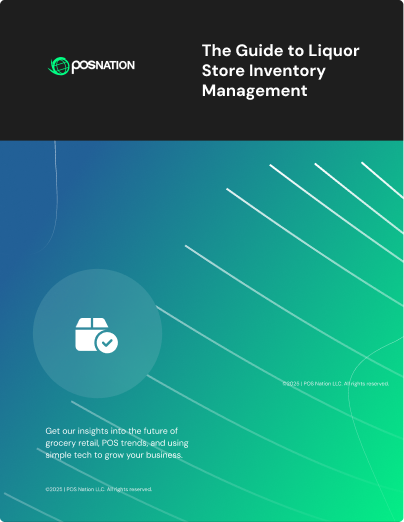Liquor stores are a popular venture for entrepreneurs, offering up to 50% profit margins and strong long-term growth potential. But before you open your doors, you must choose between two paths: running an independent shop or buying into a franchise.
Each model has its own costs, flexibility, and earning potential. Explore the differences between liquor store franchises and privately-owned stores, and why so many new owners choose to go independent.
What Is a Liquor Store Franchise?
Liquor store franchises are branded retail businesses you operate under an existing company’s name, like BevMax or Macadoodles. These agreements often include pre-established processes for everything from inventory management and marketing to store layout and supplier contracts, giving you a ready-made operating blueprint to follow.
Franchising a liquor store lets you:
-
Tap into an established brand reputation: Open your doors with built-in name recognition, customer trust, and brand loyalty that usually takes years to develop.
-
Avoid early trial and error: Follow a tested playbook for everything from shelf layouts to marketing campaigns, reducing guesswork during setup.
-
Leverage national supplier relationships: Benefit from pre-negotiated pricing and bulk discounts that may not be available to smaller, independent shops.
-
Access training and ongoing support: Get onboarding guidance, operational manuals, and promotional materials to help your store run smoothly from day one.
Franchises shorten the learning curve but come at a cost. Expect between $300,000 and $1.3 million in startup costs, plus around $40,000 in franchise fees. You must also follow strict brand rules and may have limited say in pricing or product selection.
How Does an Independent Liquor Store Operate?
When you start an independent liquor store, it’s entirely yours — name, branding, inventory, pricing, and policies. You have total control over how your business runs, which products you stock, and how you scale over time.
Running your own liquor shop means you can:
-
Handpick every product on your shelves: Offer craft labels, local distilleries, and customer favorites without being limited to a corporate catalog.
-
Allocate your money where it matters most: Spend strategically — whether investing in a custom sign, sponsoring a local event, or upgrading coolers on your timeline.
-
Cultivate the atmosphere and experience: Design your space, tone, and service model to match your vision — a speakeasy feel, a cozy corner shop, or a fast-moving discount outlet.
-
Adapt quickly to what works: Test new promotions, change pricing, or alter product focus without waiting for corporate approval or wading through red tape.
Independent liquor stores take more planning at the start, especially with licensing, vendor partnerships, and logistics. But many owners find the tradeoff worth it for the ability to set their own hours, choose their product mix, and build a store that reflects their vision.
Liquor Store Franchise vs. Independent Liquor Store
Establishing a successful liquor store is a big investment — requiring money, time, and vision. To find the business structure that fits your goals, consider how each model will impact your day-to-day work, growth potential, and role as an owner.
Take these steps to help you find the right path:
-
Assess your startup options: Choose between a franchise with fixed fees and rules, or a stand-alone model where you decide how funds are spent and when. Invest based on your market, timeline, and available capital.
-
Evaluate your earning potential: Solo shop owners can earn between $300,000 and $1.2 million in gross revenue annually, while franchise owners in the U.S. make about $80,000 per year on average.
-
Review compliance requirements: Operate under state liquor laws, whether franchise or independent. If you choose a corporate model, expect added layers — like internal inspections, franchisor approvals, and corporate policy enforcement.
-
Map out your long-term plans: Decide whether you want the ability to sell, expand, or change your concept over time. Chain store agreements often limit resale options, restrict new locations, and require approval — even for minor changes.
With an owner-operated format, you have more space to make strategic choices, keep a larger share of your earnings, and personalize products and services that serve your local market. For owners who value adaptability and long-term payoff, it’s often the better option.
But going solo also means you’re in charge of every operational choice — including the technology that keeps your store running efficiently. The right point of sale (POS) system is crucial in this industry because it simplifies compliance, speeds up transactions, and keeps your inventory under control.
Choose the Right POS for Your Independent Store
Starting an owner-run shop lets you choose the systems that work for how you operate. Instead of relying on internal systems or a generic POS, you can select software that speeds up checkout, tracks inventory, and handles the daily work behind the counter.
Look for a liquor POS solution that helps you:
-
Simplify age verification: Automate ID checks to stay compliant and avoid penalties.
-
Track high-margin products: See what sells, what sits, and where to invest your inventory dollars.
-
Manage vendor orders: Place reorders, set par levels, and avoid stockouts on your bestsellers.
-
Automate reporting: Run end-of-day, sales tax, and profit margin reports and view results in easy-to-read dashboards.
-
Speed up checkout: Accept cash, credit, mobile payments, and EBT with fast, accurate transactions.
With an industry-tailored system, you have the tools to run your solo shop efficiently and compete with any corporate or franchise model.
Support Your Small Business Liquor Store From Day One
Liquor store franchises offer an easy entry point — but a self-run shop gives you more agency to direct your store’s pace and priorities. With the right technology, you can stay organized and adapt to whatever comes next.
POS Nation connects liquor retailers with systems designed for real-world needs: fast transactions, clean reporting, and built-in compliance features. With solutions like Bottle POS, you can manage every part of your store without slowing down.
Explore your options with our Build and Price tool, where you can compare features and get a free quote in minutes. Let us help you find the right software to run your store your way.








 by Brian Sullivan
by Brian Sullivan
![4 Best POS Systems for Beer Stores in 2026 [Features, Pricing, & Reviews]](https://www.posnation.com/hs-fs/hubfs/Blog%20Featured%20Images/POS-system-for-beer-store.webp?width=520&height=294&name=POS-system-for-beer-store.webp)

 by Cort Ouzts
by Cort Ouzts

 by Spence Hoffman
by Spence Hoffman